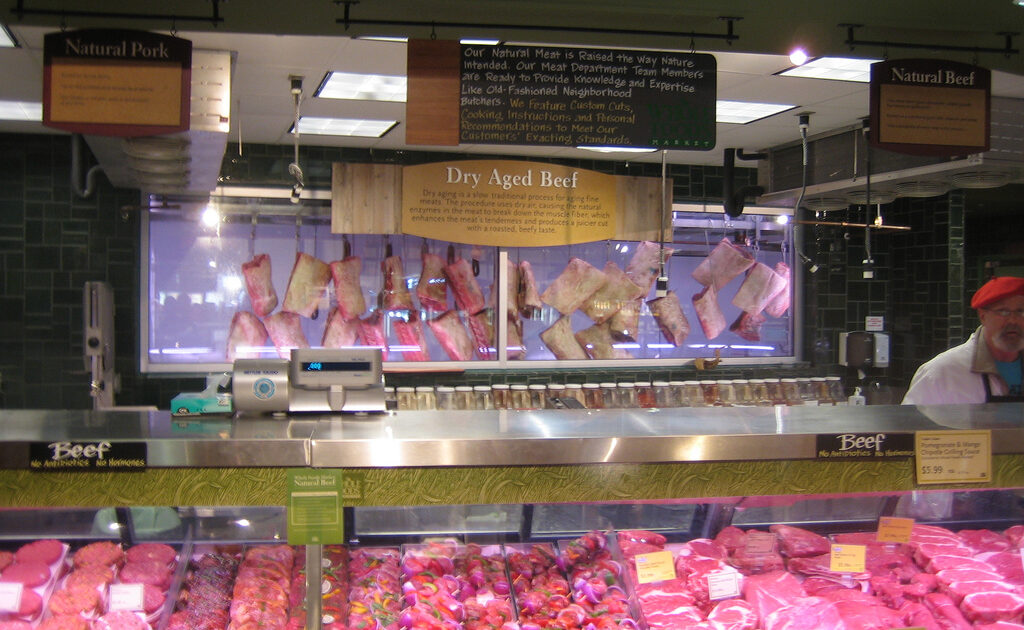Report Finds 80 Percent of ‘Humanely Raised’ and ‘Sustainably Farmed’ Claims on Meat and Poultry Unverifiable

The USDA is failing to substantiate animal welfare-related ‘humanely raised’ and ‘sustainably farmed’ label claims on meat and poultry products sold to consumers in a wide range of markets including Whole Foods, says a report released by the Animal Welfare Institute.
“The use of animal welfare and sustainability claims has increased dramatically over the past decade, as consumers become more aware of—and concerned about—the well-being of animals raised for food and the negative impacts of animal agriculture on the environment,” the group said in a statement.
AWI researched the USDA approval process over the past three years for “a number of key animal welfare and environmental claims,” including “humanely raised” and “sustainably farmed.” The research focused exclusively on claims that were not third-party certified. “The claims appear on popular “natural” meat and poultry products sold by companies such as Applegate Farms, Crescent Foods, Empire Kosher, FreeBird, Kroger’s Simple Truth store brand, A&P’s Mid-Atlantic Country Farms store brand, Niman Ranch, Petaluma Poultry, and Plainville Farms,” AWI explains.
But according to AWI’s report, entitled “Label Confusion: How “Humane” And “Sustainable” Claims On Meat Packages Deceive Consumers,” customers are being misled and taken advantage of by these companies. “The public’s interest in these claims makes them ripe for exploitation by companies wanting to lure the growing number of consumers who seek an alternative to products from factory-farming production systems. To protect consumers from misleading or fraudulent claims, USDA is responsible for evaluating and sanctioning any claims made on labels of meat, poultry and egg products sold to US consumers.”
Of the claims investigated by AWI, only two of the USDA-approved claims were found to be verifiable by more than just the producer, but more than 80 percent of the label claims “were backed by no supporting evidence whatsoever,” the group explains. “This lack of government oversight allows for the use of deceptive labels,” which is causing widespread confusion among consumers, as well as jeopardizing “higher-welfare farmers” who work hard to live up to those claims.
“Based on the records we obtained from the department itself, it appears that USDA is merely rubber stamping applications for these claims,” says Dena Jones, AWI’s farm animal program manager and lead author of the report. “There seems to be no requirement whatsoever for substantiation of the claims.”
AWI’s report also urged the USDA to enlist independent third-party certification to help prevent consumers from being misled by false claims.
“Until USDA makes significant changes to its approval process, consumers should be wary of any meat products whose label includes an animal welfare or environmental claim that is not accompanied by a statement or logo indicating an independent third party verified the claim,” said Jones.
Find Jill on Twitter @jillettinger
Related on Organic Authority
Certified Humane Sets New Standards for ‘Free Range’ and ‘Pasture Raised’ Poultry
Not All Humane Animal Standards Created Equal
Image: fboosman

